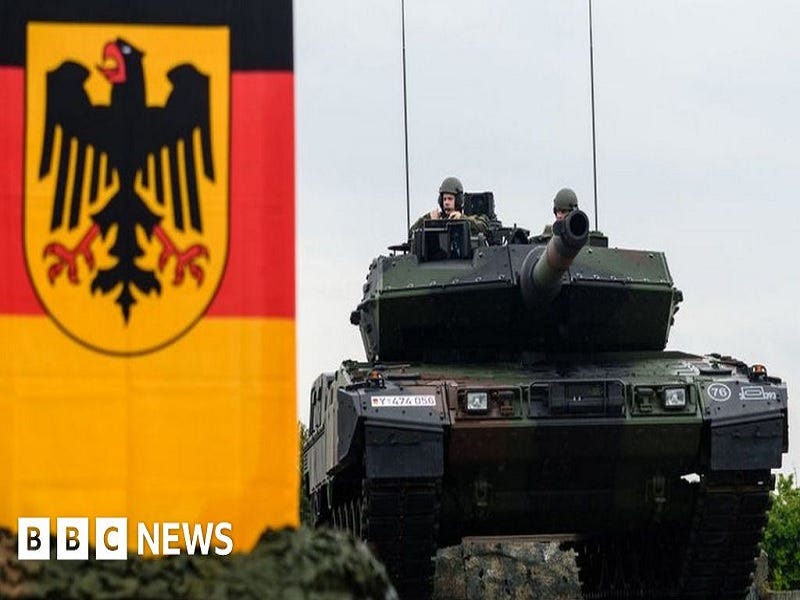Kiev is working hand-in-hand with its joint American-Polish patrons to manipulate Germany into an intractable soft power dilemma that’ll harm its interests regardless of whatever it does.
NATO’s proxy war on Russia through Ukraine is indisputably led by the US, which has supplied the lion’s share of military equipment that Kiev’s relying upon in this campaign. None of the bloc’s members are regarded as having anything near the quality of arms that America does, hence why it wouldn’t make a significant difference on the ground whether or not they contribute. Of course, Washington still wants everyone to play a role in order to consolidate the anti-Russian basis upon which this bloc was originally built, but its interests in them doing so are purely political and not military as was just explained.
This adds strategic context to why Kiev’s so disappointed that Germany declined sending it a bunch of battle tanks and continues to insist that it does so as soon as possible even though Berlin would be the first to dispatch such equipment in that scenario, which it’s uncomfortable doing. Zelensky even went as far as saying that Germany should forget its Nazi past, abandon its war guilt, and move beyond these “psychological barriers”, that’s how badly he wants its battle tanks. By contrast, he hasn’t put any such pressure on his top US patrons to send equivalent equipment instead.
What’s really happening is that Kiev and Washington, the second of which reportedly considers Berlin “unreliable” now that it’s balking at sending battle tanks and other arms, have placed the de facto EU leader on the horns of an intractable soft power dilemma. On the one hand, refusing to send more military equipment – including being the first to transfer state-of-the-art battle tanks – plays into the narrative that Polish Prime Minister Morawiecki recently talked about concerning Germany’s alleged unreliability as an ally, but on the other, doing so plays into the other one hyping up the German threat.
The first is aimed at reducing confidence in Germany’s leadership so that Poland can position itself as a more reliable partner for the Central & Eastern European (CEE) states as it carves out a “sphere of influence” there through the “Three Seas Initiative” (3SI). The second, meanwhile, manipulates historical trauma over Germany’s prior aggression in order to position Poland as the only power capable of protecting CEE. Regardless of whatever Berlin does, it ends up playing into Warsaw’s hands, which in turn advances Kiev and Washington’s interests in replacing Germany’s present role in the region.
All three – the US, Poland, and their joint Ukrainian “protectorate” (with which Poland has recently unofficially merge into a de facto confederation) – are united in their efforts to continue putting maximum pressure on Germany to take the unprecedented step of sending battle tanks to Kiev. As was earlier cited, the US reportedly considers Berlin “unreliable” since it’s yet to do so, Kiev is “disappointed”, and Warsaw’s top diplomat just speculated that the delay in sending arms there in general (such as the 30-month wait on howitzers) is part of a plot to avoid crossing Russia’s “red line”.
About that, the Kremlin accused the EU’s de facto leader of having already done so through its prior lethal arms shipments, but there’s always the theoretical chance that those two could still patch things up as long as Germany remains reluctant to take the lead in sending battle tanks like its “allies” want. Publicly amplifying these suspicions like Foreign Minister Rau just did is intended to simultaneously put more pressure on Berlin while also stoking fear of its grand strategic intentions, both of which play into the narrative-soft power dilemma that was previously explained in this piece.
Even in the unlikely event that Germany immediately capitulated to this pressure and emptied its remaining battle tank stockpile by gifting it all to Kiev, it still wouldn’t make its “allies” happy. They’d simply spin that development as “too little, too late” and blame Berlin’s hitherto reluctance to do so for prior setbacks in that conflict, imagining that they wouldn’t have happened had Germany done what they demanded right away. Those three countries would also never cease to remind everyone about how long it took for Germany to dispatch that equipment, thus continuing to portray it as unreliable.
At the same time, they’d also propagate the opposite narrative towards Russia by exaggerating Germany’s supposedly newfound commitment to that proxy conflict in order to shape the soft power conditions within which it would be impossible for those two to ever enter into a rapprochement. If Berlin concludes that this already far-fetched scenario isn’t worth taking seriously anymore, then it might be compelled by the military-strategic momentum into doing even more for Kiev in a misguided attempt to give itself an edge in the suddenly fierce competition for regional influence with Warsaw.
The preceding insight that was shared thus far enables one to confidently answer the question that headlined this analysis. Kiev is so insistent on Germany sending it a bunch of battle tanks because it’s working hand-in-hand with its joint American-Polish patrons to manipulate Berlin into an intractable soft power dilemma that’ll harm it’s interests regardless of whatever it does. By remaining reluctant to comply with its unprecedented demands, Berlin plays into Warsaw’s narrative that it’s an unreliable ally, while capitulating to them plays into its narrative of a German threat and also worsens ties with Moscow.





Brilliant. Love understanding these strategic nuances and subtleties. Great question!
And while the world is distracted by Ukraine, China is gaining friends around the planet and Iran is preparing to destroy Israel.
Nice Job, Brandon.